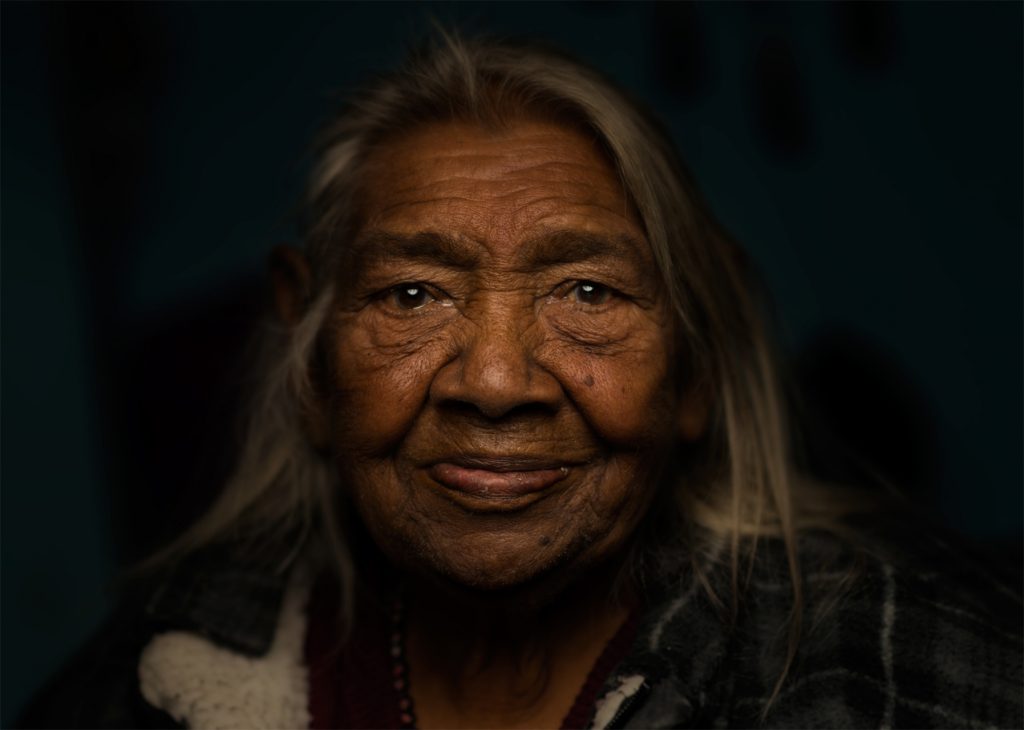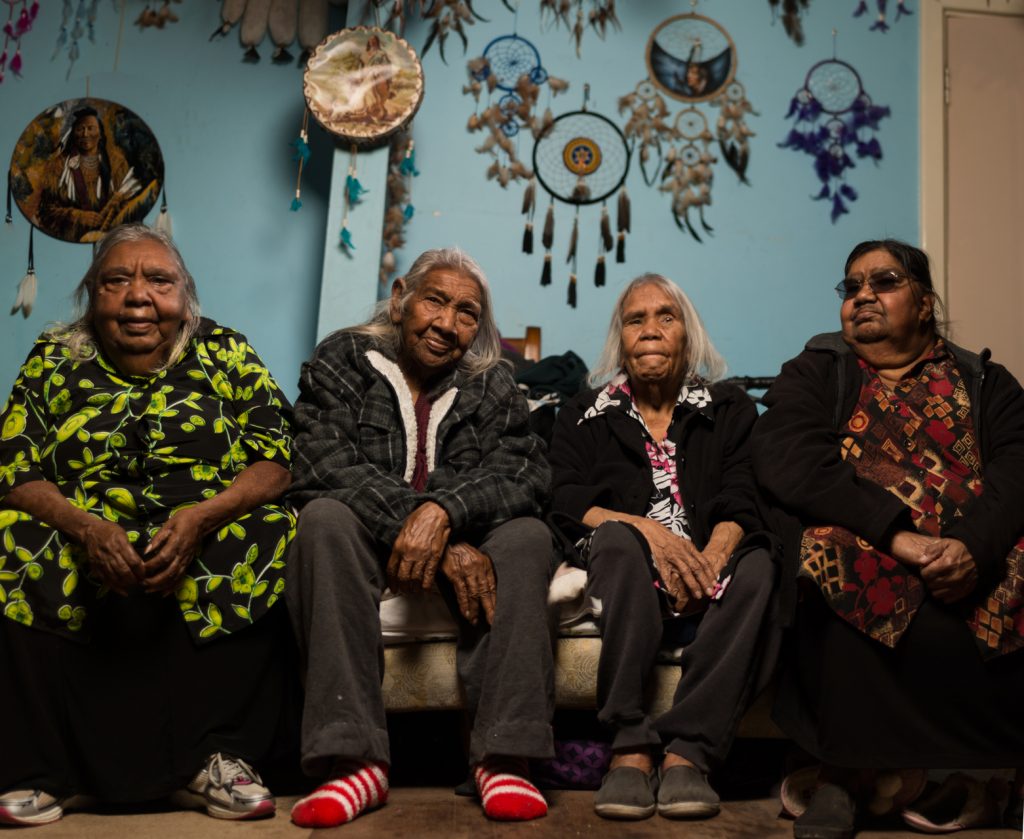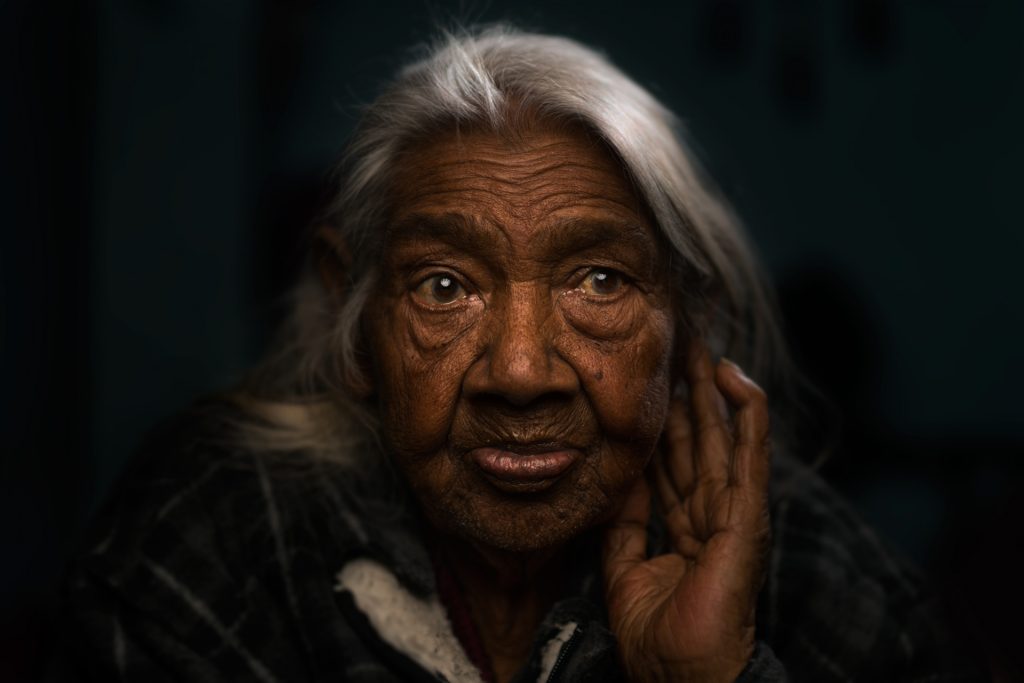On the road with Sophie Matterson
When I got the call from Australian Geographic to track down Sophie Matterson and...
Recently on my voyage back from Adelaide I was invited by Esther Seery to spend an hour with her family to document through portraiture author, Elder and activist Eileen Wani Wingfield and her three sisters at their home in Port Augusta. The portraits had to be fast as I didn’t want to interrupt the ladies tv show and I also had to get back on the road before the kangaroos and bullocks decided to come out from their slumber.

This experience showed me my clear progression in creating connection and listening to peoples stories and history whilst interacting and capturing moments in time.
The importance of these types of encounters are never lost on me and it is with the upmost respect that I create these images. This opportunity won’t come along again and I am painfully aware of the reverence of being invited to sit with these strong woman who have helped shape Australia in a much better way showing me that amongst all of the negativity of the media and government there are still people willing to put themselves out there to exact change.


Eileen Wani Wingfield was a Kokatha elder from South Australia. She was jointly awarded the Goldman Environmental Prize in 2003[1] with Eileen Kampakuta Brown, for efforts to stop the plans for nuclear waste dump in Australia’s wild desert land, and for protection of their land and culture.
Living her life in the South Australian desert, Mrs Wingfield experienced first-hand the effects of the British military’s nuclear weapons tests at Emu Fields and Maralinga during the 1950s and 1960s. Motivated by this injustice, she dedicated her life to protecting her country and future generations from the effects of the nuclear industry. In the early 1980s Mrs Wingfield lay down in front of bulldozers at Cane Grass Swamp in opposition to the Olympic Dam uranium mine’s construction.
Wingfield (with other elder women) formed the Kupa Piti Kungka Tjuta, Coober Pedy Women’s Council, in 1995.